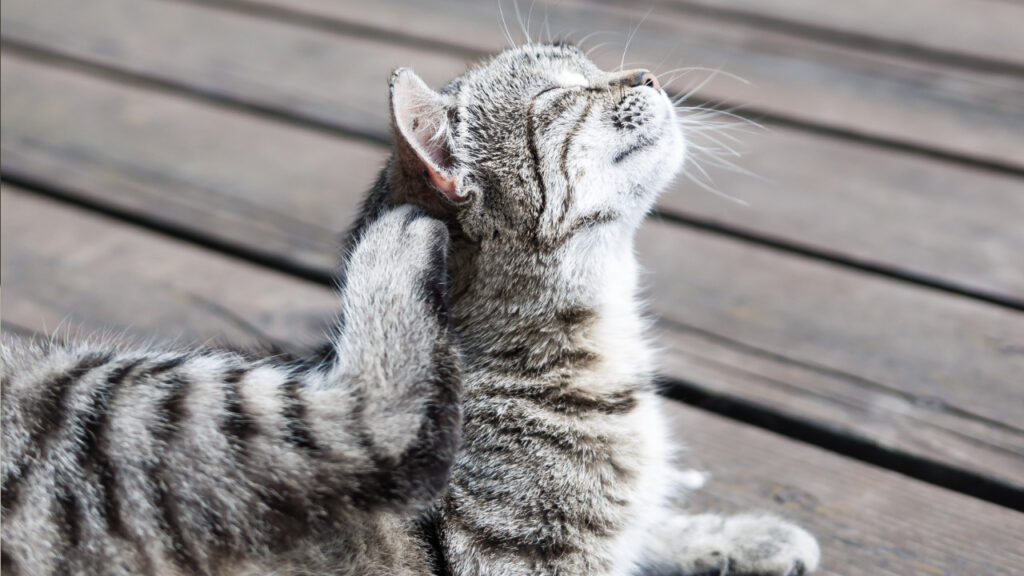How to treat and manage an itchy cat

Following on from our last post that listed the reasons why cats get itchy, our vet’s have some further tips to help you manage your itchy patient at home.
How can I help my itchy cat?
It’s a good idea to read our previous post to help you identify the reason as to why your cat could be itchy. Treatment is dependent on the cause.
1. Fleas:
It’s important to use an effective cat flea product regularly. It’s the only thing that kills fleas as quickly as possible, ensuring there’s less time for fleas to cause an itch (remember, a single flea can cause huge havoc). You’ll also need to vacuum and wash your cat’s bedding, as well as any blankets or toys that make up their space.
2. Inhaled allergies (atopy):
These allergies are usually treated with corticosteroids or other immune suppressive drugs, so you’ll need to see a vet. Antihistamines are sometimes effective too. In terms of what you can do, oatmeal shampoos and fatty acids in your cat’s diet are really important.
3. Food allergies:
It’s best to identify the problem protein with a food allergy elimination trial, you can consult your vet for this. From there, avoid those foods altogether. It’s truly the best method of management. You might still be able to feed your cat commercial food (that doesn’t include the allergen), but it depends on the specific allergy. In some cases you may have to switch to a home cooked diet.
4. Insect bites:
Often treated with corticosteroids and by reducing how often they’re bitten – this may involve keeping your cat in during dawn and dusk when biting insects such as mosquitoes are most active or just keeping them inside full time. Approved mosquito repellents can be used.
5. Ear Mites:
Elimination of mites with an effective product and treatment of secondary infection from your local vet.
How can I relieve itching at home?
Regardless of what’s causing the itch, there are many ways you can bring your cat some much needed, very welcome relief.
1. Regular flea control is key
To reduce the amount of allergens for an itchy cat, they need to be on a trusted cat flea treatment. This is because allergies can have an additive effect. Your cat becomes itchy once a ‘threshold’ is met.
2. Oatmeal shampoos for relief
Regular bathing with colloidal oatmeal shampoos and conditioners are very effective for itchy felines (not all will be cooperative with this!). Please make sure they’re the ones specifically for cats and not humans. We have a different skin pH, so human products aren’t appropriate.
3. Omega fatty acids in foods
These are a natural anti-inflammatory for the skin and will help relieve your itchy companion.
When should I go the vet?
If your cat has scabs or sores on their skin, you need to go to your local vet clinic as soon as possible. They’ll perform the proper tests in case of parasites, infection, atopy, internal medical conditions, immune mediated disease and more.